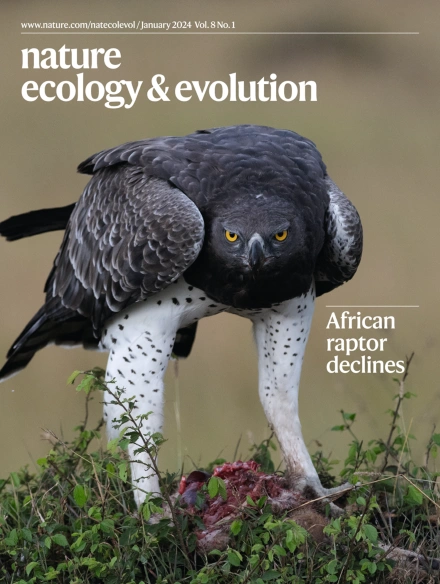修订植物命名法进展缓慢
IF 13.9
1区 生物学
Q1 ECOLOGY
引用次数: 0
摘要
物种名称的准确性和清晰度是通过全球商定的规则(即各种国际命名法)来实现的。国际植物学大会每六年举行一次,最近一次将于 2024 年 7 月中旬在马德里举行(参考文献 2),在为期一周的会外会议上,对这些规则1 的拟议修正案进行辩论。与会代表接受的修正案将纳入 2025 年出版的下一部《国际藻类、真菌和植物命名法规范》(以下简称《规范》)。2024 年国际植物学大会审议了三个有争议的问题,其中两个问题的重点是解决历史命名所产生的伦理问题,另一个问题的目的是使类型方法面向未来,以确保生物命名法能够继续准确地记录和命名地球上的生物多样性。最后,就第一个问题做出了适度的决定,该问题涉及同名异名--为纪念重要人物而命名类群的常见做法。同名地名捕捉并永久记录了分类科学的历史和社会背景中值得注意的方面,有时甚至是令人不安的方面。马德里会议审议的一套提案3 提供了一种机制,通过这种机制,有问题的外来地名,如纪念被奴役者的商人或对种族灭绝政策和行为负有责任的殖民管理者的地名,可以退役,代之以更合适和可接受的名称。这些建议在 2021 年首次公布时引发了争议:一些人认为,这些建议将打开重新命名的闸门,使命名法陷入混乱。到马德里会议开幕时,这些建议已经使社区两极分化。会议结束时,达成了一项决定(达到了所需的 60% 的超级多数),即修改《规范》,允许拒绝对一个或多个群体有贬义的名称,但仅限于 2026 年 1 月 1 日之后公布的名称。尽管这一决定承认贬损性地名是不可接受的,但与会者对制定处理历史上贬损性地名的方法持反对意见。会议成立了一个特别委员会,负责向下一届会议(2029 年,南非开普敦)报告如何以最佳方式处理植物命名中的伦理问题。该委员会成立后,将承担一项重要但具有挑战性的任务--在一个有争议的领域找到适当的前进方向。本文章由计算机程序翻译,如有差异,请以英文原文为准。
Slow progress in mending the laws of botanical nomenclature
求助全文
通过发布文献求助,成功后即可免费获取论文全文。
去求助
来源期刊

Nature ecology & evolution
Agricultural and Biological Sciences-Ecology, Evolution, Behavior and Systematics
CiteScore
22.20
自引率
2.40%
发文量
282
期刊介绍:
Nature Ecology & Evolution is interested in the full spectrum of ecological and evolutionary biology, encompassing approaches at the molecular, organismal, population, community and ecosystem levels, as well as relevant parts of the social sciences. Nature Ecology & Evolution provides a place where all researchers and policymakers interested in all aspects of life's diversity can come together to learn about the most accomplished and significant advances in the field and to discuss topical issues. An online-only monthly journal, our broad scope ensures that the research published reaches the widest possible audience of scientists.
 求助内容:
求助内容: 应助结果提醒方式:
应助结果提醒方式:


